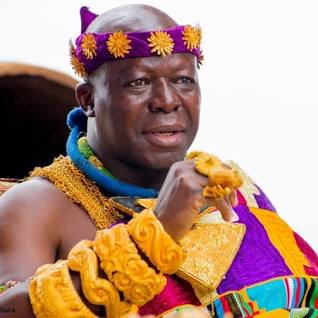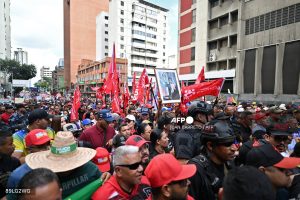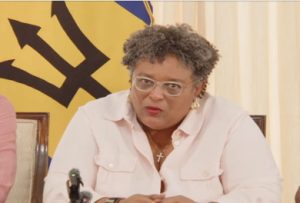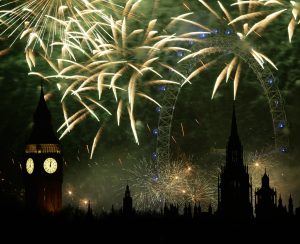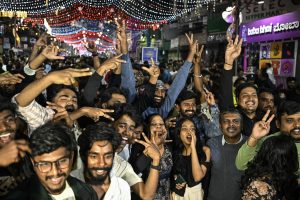Dear Editor,
It has been a topic of great amusement for some time now that a vast number of Caucasian Americans are not aware that Africa is a continent rather than a country. While this is rooted party in their sub-par educational system, as I am sure many of them also don’t know what a continent is, it is far more likely to be a constraint of the colonial-English language that leads to this misunderstanding. How? You might ask. Well, it’s because every single person living in America today whose ancestry can be traced back to the Atlantic slave trade is classified as an African-American today.
Unlike Caucasians who are routinely identified by their ancestral tribes, predominantly Anglo-Saxon, Germanic, Polish, Irish, and sometimes Italian; and Asians who take pride in their country of origin such as China, Japan, Korea, Vietnam, Phillippines, India and Sri Lanka; African Americans do not have the luxury or ability to identify as anything other than their continental homeland.
Even Caribbean residents who migrate to the US are identified by their adopted homes and cultural significances such as Trinidadian, Jamaican, Haitian and Guyanese, and distinguish themselves from those persons with whom they share slave ancestry and who may be closer related to them than they would ever know. For this reason, it is no wonder that Africa is treated and considered as a country by so many in America.
Paid Political Ad

The irony is that because the idea of Africans as a collective term for people originating from the African continent hadn’t existed prior to the slave trade the conversation surrounding the question or issue of how Africans traded their own people often gets muddled and messy.
Because for the most part, the tribes in Western Africa who did capture and traded slaves to the Europeans didn’t consider those commodities with similar skin tones to be related to them in any meaningful way. To them, it wasn’t an issue of Africans capturing and selling other Africans, but rather simply tribes like the Asante and Dahomey who were capturing their enemies to trade for goods and wealth.
It should also be noted that it was because of the fact 90% of the slaves sold to the European traders were supplied by these two tribes, there was no record-keeping to note which specific tribe any of these people originated from. As such, unlike East Indians who are fortunate to at least have some ability to trace our ancestry back to villages in India, these people and their lineage would be branded as Africans for generations to come.
And this is why many descendants of slaves do not have any real connection with their ancestral land, simply because other than doing a DNA test to give you a statistical likelihood of which tribes they had descended from, there is no way of knowing for such, as their history had simply been erased before they ever saw a slave ship.
And this is where I arrive with the invitation to The Asantehene Otumfuo Osei Tutu II to Trinidad for the Emancipation Day celebrations. Mr Orin Gordon wrote an interesting column this week explaining that to hold Africans accountable for their role in the Slave Trade is difficult because because of the lack of record keeping, which is true, in that we don’t know which individuals were caught and traded by which tribe and who would have profited from those transactions. Except in the case of The Asantehene Otumfuo Osei Tutu II, who is in the direct succession to the 17th-century founder of the Ashanti Empire, Otumfuo Osei Tutu I, whose bloodline captured and traded hundreds of thousands of slaves.
This brings me to the sinister undertones of the association of the PNM government with The Asantehene Otumfuo Osei Tutu II, as it reunites so many descendants of slaves in Trinidad and Tobago with a representative of the Monarchy that traded their ancestors into bondage. It is no secret that this PNM administration, more than any in the history of country, has traded on the memory and glorification of Colonial iconography, with the Keith Rowley’s memoir being proudly titled From Mason Hall to White Hall which reflects the journey of a slave descendant elevating themselves to an office in a plantation house. It is therefore no surprise that Dr Rowley would feel similar pride in sharing a throne with an Asante King as it no doubt feeds into his self-delusion of being the Monarch of a slave plantation.

The prime minister has often lambasted the idea of rewriting history in T&T and the Caribbean, but to invite The Asantehene Otumfuo Osei Tutu II to our Emanciation Day celebrations without an apology for the hand his ancestors played in the Atlantic slave trade is to erase their role in the minds of anyone who participated in the event.
Not to be too harsh on The Asantehene Otumfuo Osei Tutu II, as he has been working towards writing many of the wrongs committed in the past in his own country, but for him not to acknowledge the irony of him having to travel the same route as the slaves his ancestors sold in order to join in these celebrations demonstrates a lack of awareness of anyone involved in the preparations. And that lack awareness makes me wonder whether there is any guilt or responsibility felt by The Asantehene Otumfuo Osei Tutu II at all.
Ravi Balgobin Maharaj
![]()


